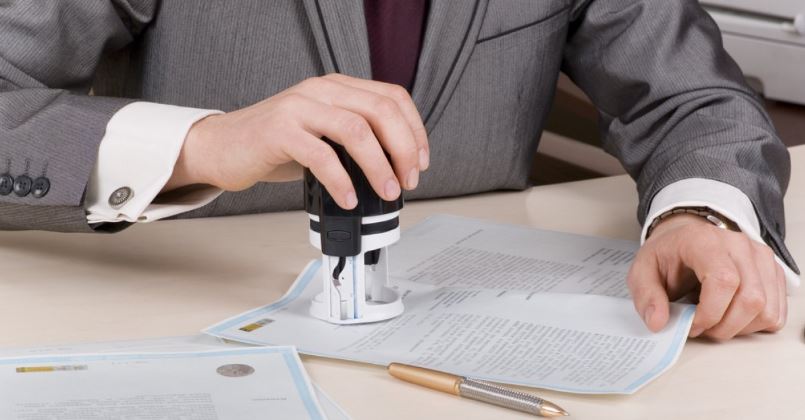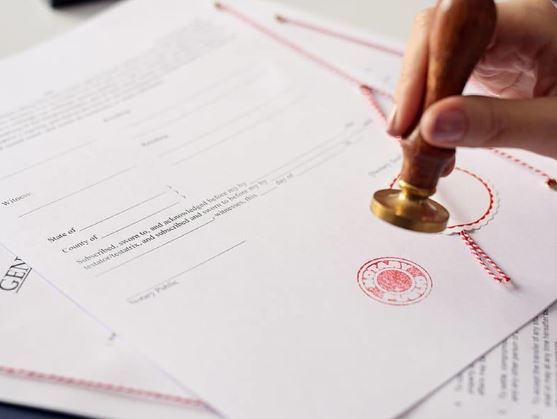What is The Differences between Notarized and Certified Translation?
July 15 , 2021What is The Differences between Notarized and Certified Translation?
by Target Language Translation Services
- July 15, 2021

Sometimes when you are required to offer a document that was not originally written in English, you are oftentimes asked to prove that you used a professional qualified translation service like Target Language Translation Services to translate the document. This type of proof can be obtained either through a Certified Translation or a Notarized Translation.
However, people usually find it difficult to spot the difference between notarized and certified translation. Often, they are asked to provide a document translated by a professional qualified service, so one may get lost which exactly ones do they need. The certified translation aims to show that the document is translated correctly, while notarized translation simply proves that translation copy is true and caters to law. In this article, we will go into detail about this difference.
What Does Certified Translation Mean?
A Certified Translation is a document issued by a professional translation agency that provides a certificate of accuracy and completion along with the translated documents, certifying that all detailed statement is correct, precise and complete and that the person who translated the document is fluent in both the language of the document and the translated one. As for certified translation services, the document is provided by the Language Service Provider (LSP), which has high chances of document acceptance.
For certification, the original document is translated entirely, with a certificate of accuracy signed by a professional and certified translator with attestation of complete accuracy and completion certificate of the translation. If something is not clear in the original, the translator has to write “not legible” for these parts of the translation. Such translation should be visually matching to the original, everything has to be in the same places. Only a skilled specialist can do such a job, so it’s better not to do it by yourself. The person might even be certified in a given language pair to provide accurate documents.
Importantly, a certified translation is very legally binding, because the translator is responsible for all the information of the document. The certifications of a specialist mean that they are accredited by a government body which proves that they can properly translate the documents.
What is Notarization?
Notarized translations vary from the certified one on certain criteria. A notarized translation does not require a high quality of translation, but rather fulfills the formal requirements of a certain institution. The process of notarizing a translation must start with the translator taking his translation to the Notary himself. The translator then has to swear an oath on its precision and sign an affidavit in front of the Notary. After carrying out these actions, the translator has to pass the documents to the Notary public. Only when the Notary public signs the documents and attaches its official seal on it as proof of notarization, the documents are considered as notarized documents.
In the case of notarized translation, the notary certified translation is more of official procedures and less of quality control. Keep in mind that the notary does not assess the quality and fullness of the work, nor the quality is well judged.
For them, the identity of the translator is important, because they have to trust their words. So, it is more of a third party check which makes sure that the translator completed the work, did their best, and offered precise results. Notarized translation is rather an act of double security that ensures that the information is correct. If it’s not, the translator could be held liable for completing the wrong translation. That’s why their oath at the notary public is vital. Notarized translations are often ordered for semi-legal and smaller legal documents.

What is the Difference between Certified Translation and Certified Translator?
Some may think that both certified translation and notarized translation are same, but actually, there is a huge difference between them and each one is used differently as per requirement. We will try to clarify this.
If the translator is certified, that means they have a professional degree from an educational establishment with a major in translation. Also, this person passes the test which proves their ability to work with a certain language pair. Often, such people have certification of the US Translators Association, which means that specialists worked hard to pass the test.
Although hiring a certified specialist for translation of the certified document is preferable, that is not the only variant. If the translator has much experience and is well-qualified, you may trust your translation to them. In many companies, such translation is assigned to the most qualified and experienced specialists. After this, it goes to another specialist for proofreading. They both may not be certified, but translate the same well.
When to use Certified or Notarized Translation?
Certified Translation is required for:
Transcript Evaluation Companies (Notarization is not required by most evaporators anymore)
College Applications, Graduate School Applications (Official translations are accepted by most colleges)
DOE (Department of Energy) Usually for employment or background objectives.
NVC (National Visa Center) Standard Certified Translation required in 2MB PDF Electronic Form
Federal and State Courts, Most Local Courts (Most States) All courts are various, but we have found that a typical, standard certification is acceptable for Federal and State courts.
USCIS (United States Citizenship and Immigration Services (formerly INS) )
DOD (Department of Defense) Usually for enlistment, recurring or background objectives. Also for the Spouse Card, Uniformed Services Card or Common Access Card, also known as the CAC and USID cards.
Notarized Translation is required for:
Apostille and Authentication Applications (All States) Only Ecuador and Colombia require that the translation is authenticated, which requires a state-specific notarized translation.
DMV (Some states: Georgia, Tennessee, New Mexico, etc.) If you are confused, it is always a good idea to notarize before applying for a new driver’s license.
International Submission (All Countries) When sending documents to another country, it is always best to notarize the certification letter.
Visa Applications to Spain for study abroad, residency, long-term travel, or other applications.
US Passport Applications (Department of State or US Post Office)
Some Local Courts (Various States) Most do not need notarization anymore; however, you should check local requirements.
This article is reprinted from IsAccurate and SES.
If there is a copyright, please inform us in time, we will delete it right the first time.